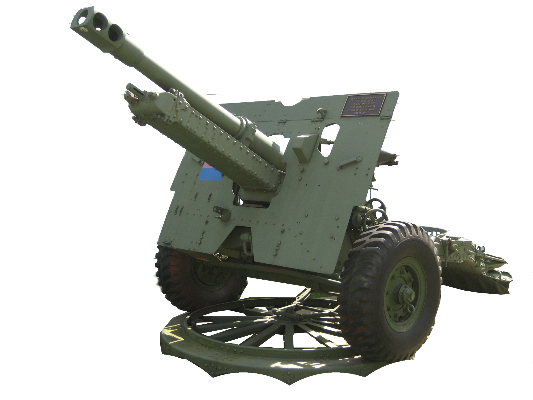
This image has format transparent PNG with resolution 533x400.
You can download this image in best resolution from this page and use it for design and web design.
Cannon PNG with transparent background you can download for free, just click on download button.
A cannon (plural: cannon or cannons) is a type of gun classified as artillery that launches a projectile using propellant. In the past, gunpowder was the primary propellant before the invention of smokeless powder in the 19th century. Cannon vary in caliber, range, mobility, rate of fire, angle of fire, and firepower; different forms of cannon combine and balance these attributes in varying degrees, depending on their intended use on the battlefield. The word cannon is derived from several languages, in which the original definition can usually be translated as tube, cane, or reed. In the modern era, the term cannon has fallen into decline, replaced by "guns" or "artillery" if not a more specific term such as "mortar" or "howitzer", except in the field of aerial warfare, where it is often used as shorthand for autocannon.
The earliest known depiction of cannon appeared in Song dynasty China as early as the 12th century, however solid archaeological and documentary evidence of cannon do not appear until the 13th century. In 1288 Yuan dynasty troops are recorded to have used hand cannons in combat, and the earliest extant cannon bearing a date of production comes from the same period. Evidence of cannon next appeared in Europe. By 1326 depictions of cannon had also appeared in Europe and almost immediately recorded usage of cannon began appearing. By the end of the 14th century cannon were widespread throughout Eurasia. Cannon were used primarily as anti-infantry weapons until around 1374 when cannon were recorded to have breached walls for the first time in Europe. Cannon featured prominently as siege weapons and ever larger pieces appeared. In 1464 a 16,000 kg cannon known as the Great Turkish Bombard was created in the Ottoman Empire. Cannon as field artillery became more important after 1453 with the introduction of limber, which greatly improved cannon maneuverability and mobility. European cannon reached their longer, lighter, more accurate, and more efficient "classic form" around 1480. This classic European cannon design stayed relatively consistent in form with minor changes until the 1750s.
In this page you can download free PNG images: Cannon PNG images free download